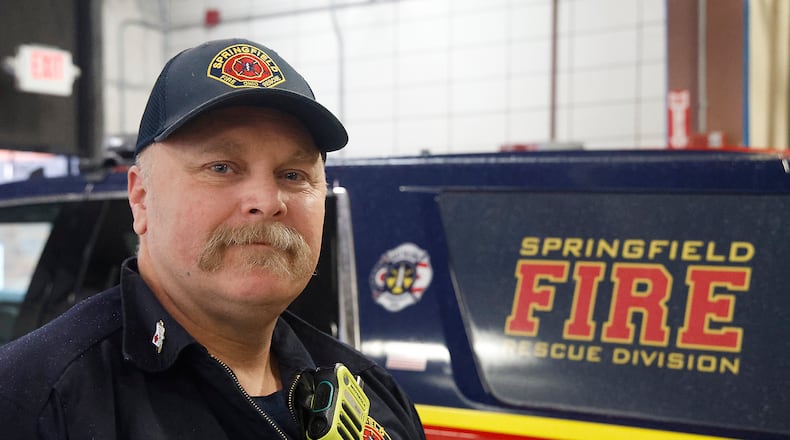Felix Shanahan, lieutenant of EMS for the Springfield Fire Rescue Division, said the response team has expanded the groups involved, adding the county dispatch center and Mercy Health — Springfield to the list that includes Mental Health Services for Clark and Madison Counties, the Mental Health Recovery Board of Clark, Greene and Madison Counties, the Springfield Police Division and the Springfield Fire Rescue Division.
Shanahan said the fire department is placing more of an overall emphasis on paramedicine — bringing a qualified health professional to the patient rather than the patient to a facility if it can be avoided — and a mobile crisis responder is in line with this principle.
“It’s taking the proper health care worker and taking them out in the community to meet the need where the person is versus just bringing all those people to an institution,” Shanahan said. “And through that process, sometimes serving that patient’s need better than they would have been served if they had gone to an institution. Not to mention, it prevents unnecessary institutionalization.”
John Lawson, assistant director of care transitions with the Mental Health and Recovery Board, said he has seen a positive impact from the team. However, coordinating inpatient psychiatric care based on necessary services, health insurance coverage and availability of beds is a challenge for hospital social workers or counselors trying to keep patients “as close to their home support system as possible.”
Lawson said the team has been exploring embedding a mental health caseworker within the fire department but has not yet been able to do so due to staffing challenges. He said the area is experiencing a behavioral health workforce shortage.
“We require an infusion of qualified behavioral health providers to drive down avoidable hospitalizations, reduce recidivism with justice-involved clients and increase much needed access to essential care,” Lawson said.
Shanahan said the team is improving its response protocol. Right now it involves a phone call to Mental Health Services to have a mobile responder meet EMS, fire and/or police at a scene.
Shanahan said theoretically, county first responders could also call upon mobile crisis responders.
Springfield Fire Rescue Division Chief Jacob King said figuring out who to turn a patient over to is a challenge because protocol and state guidance requires EMS providers to turn patients over to an “equal or higher level” medical authority.
Currently, the fire department is not tracking how often the team is activated, but Shanahan said he believes it sends mobile crisis responders out around two to three times weekly. An embedded person would track the team more closely and have measurable data, he said.
Mental Health Services is currently hiring a full-time mobile crisis responder to join the team.
Those experiencing a mental health crisis can call the national Suicide & Crisis Lifeline at 988 24/7, or the Thrive Warmline at 937-662-9080 24/7.
About the Author
